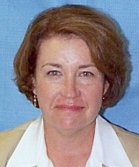The U.S. Securities and Exchange Commission “SEC” recently announced that Karol L.K. Pollock is now the new leader of the examination program in the Los Angeles Regional Office.
Read MoreJacko Law Group Blog
Jacko Law Group, PC
Recent Posts
Private funds commonly use third parties, often known as finders, to raise capital from potential investors. When entering into arrangements with finders, private fund managers should carefully consider whether the finder is registered as a broker-dealer. Except in very limited circumstances, paying a commission to a finder that is not registered as a broker-dealer violates federal and state securities laws. SEC regulations do provide a safe harbor from the broker-dealer registration requirements for an agent of the issuer in certain limited circumstances. However, outside the safe harbor rule, the determination of whether a finder is subject to registration requirements is highly fact-specific.
Some activities generally lead to classification as a broker-dealer, and as such should be avoided by finders. Negotiating terms or providing recommendations of the financing transaction is generally considered to be a broker-dealer activity, along with handling funds involved in the transaction. Providing issuing companies with assistance in drafting or distributing sales and financial materials will generally prompt registration. Soliciting investors and previous involvement in the sale of securities is also a factor weighing in favor of the registration requirement.
Moreover, payment of fees to a finder which are contingent on the success of the financing transaction is likely to trigger registration. Percentage commissions and other compensation arrangements that vary depending on the amount invested create a substantial likelihood that a finder would be viewed as a broker-dealer, who is required to register with the SEC. The SEC has consistently treated transaction-based payment as a key factor in determining whether a finder is acting as a broker-dealer. This is because compensation directly tied to the success of the investments in securities heightens the incentive for the finder to engage in sales efforts. Therefore, the finder is acting in a salesman capacity, which is generally reserved for broker-dealers. The finder should receive a fixed fee regardless of the outcome of his or her efforts in order to avoid violations.
If the finder is found to be acting as an unregistered broker-dealer, he or she may be barred from enforcing and collecting finder’s fees. The SEC also can issue cease and desist orders, impose civil penalties, and seek criminal prosecution, including criminal fine sand imprisonment for egregious violations. Therefore it is imperative to conduct due diligence on the finder prior to engagement.
For more information on this and other related subjects, please contact us at info@jackolg.com or (619) 298-2880.
Photo Credit: http://coloradobusinesses.com/wp-content/uploads/2013/08/broker_dealer_cloud_400-351.jpg
Read MoreIn its newly released financial report for fiscal 2014, the SEC has stated that they will be evaluating recommendations from a staff report to consider a uniform fiduciary standard for investment advisors and broker-dealers as well as finding ways to harmonize rules for advisors and brokers in fiscal 2015.
Read MoreOn October 24, 2014, the Securities and Exchange Commission (SEC) approved Municipal Securities Rulemaking Board’s (MSRB) Rule G-44, which is the MSRB’s first dedicated rule for municipal advisors. The new requirements take effect April 23, 2015, giving firms six months to implement the required policies and procedures.
Read MoreThe Securities and Exchange Commission (SEC) today released an order instituting administrative and cease-and-desist proceedings against an investment advisory firm and three top officials for violating the custody rule that requires firms to follow certain procedures when they control client money or securities. Advisory firms can comply with the custody rule by distributing audited financial statements to fund investors within 120 days of the end of the fiscal year. The custody rule provides investors with verification of their assets to protect against misuse or theft.
According to the SEC’s order instituting an administrative proceeding, Sands Brothers Asset Management LLC (SBAM) provides investment advisory services to a number of pooled investment vehicles, and wrongly stated in its Form ADV that it does not have custody of client assets. The SEC alleges that SBAM violated the custody rule by not timely distributing audited financial statements to investors in ten private funds. According to the SEC, SBAM was at least 40 days late to distribute statements in 2010. SBAM was allegedly six months to eight months late in delivering the audited financial statements for those same funds late the very next year. The same statements for 2012 were distributed approximately three months late.
Notably, in 2010, SBAM and two co-founders were sanctioned by the SEC for custody rule violations. The SEC’s order found that that SBAM “willfully violated the custody rule by improperly relying on the pooled investment vehicle alternative, which allowed for the distribution of audited financial statements in lieu of submitting to a surprise examination by an independent public accountant to verify custody of assets, among other requirements.”
“The custody rule is not a technicality. It is a critical investor protection provision designed to help ensure that investor assets are safe,” said Andrew Calamari, director of the SEC’s New York Regional Office. “Sands Brothers and its senior-most officers have persistently disregarded their obligations under the law and left their clients waiting for months at a time to have the materials they need to verify the existence and value of fund assets.”
For more information on this and other related subjects, please contact us at info@jackolg.com or (619) 298-2880.
Read MoreThe Securities Exchange Commission (“SEC”) has recently charged Strategic Capital, LLC (“Strategic Capital”) an independent advisory firm in the state of Washington, for violating rules 203(e) and 203(k) the Investment Advisers Act of 1940,(“Advisors Act”).
Strategic Capital distributed “false and misleading advertisements” by failing to disclose that the published results were partially based on returns of an index rather than the actual returns. In another advertisement, the firm printed results that did not reflect deducted fees, which overstated their investment performance.
“Investment advisers must be fully forthcoming about how they execute client trades and portray past performance,” said Marshall S. Sprung, Co-Chief of the SEC Enforcement Division’s Asset Management Unit.
The thorough investigation by the SEC revealed also that Strategic Capital and its CEO N. Gary Price also had “engaged in more than 1,100 principal transactions” through its brokerage firm, RP Capital LLC without properly disclosing the information to clients. When engaging in principal transactions, firms must not only disclose this information to clients, but must also obtain the client’s consent. In this case, Strategic Capital failed to do both. According to the SEC, Strategic Capital clients did not receive best execution from the firm thereby further breaching their obligations under the Advisers Act.
“Strategic Capital clients were not provided all of the information they needed to evaluate the firm’s potential conflicts of interest and investment management skills,” said Sprung.
Although the firm and CEO did not admit or deny to any wrong doing, they have agreed to pay $368,459 to current and former clients. The firm also must pay prejudgment interest of $17,831 and a penalty of $200,000.
It is imperative for personnel of investment advisors to understand the regulatory provisions of the Advisors Act and how they apply to the business.
For further information on this and other related subjects, please contact us at info@jackolg.com or (619) 298-2880.
Read More
The Securities and Exchange Commission (“SEC”) has charged a Houston-based advisory firm with fraud for failing to disclose conflicts of interest to investors. Robare Group Ltd. (“Robare”) had a compensation arrangement in place with the un-named brokerage firm who was offering the mutual funds. The arrangement allowed Robare to receive a percentage of every dollar received for recommending the mutual fund to clients. Over eight (8) years Robare received almost $440,000 from the broker.
Read MoreAttorneys for Samuel E. Wyly (“Sam Wyly”) and his late brother Charles J. Wyly (“Charles Wyly”) (jointly, the “Wylys”) presented arguments to a U.S. District Judge disputing the amount the Wylys are being ordered to pay for their role in a fraudulent offshore operation. The Securities and Exchange Commission (“SEC”) has requested $729 million in damages from the Wylys related to “a 13-year fraudulent scheme to hold and trade tens of millions of securities of public companies while they were members of the boards of directors of those companies, without disclosing their ownership and their trading of those securities.” The fraudulent activity used a system of trusts in the Isle of Man and the Cayman Islands to hide their ownership and control of the Issuers’ securities.
Read MoreLegal Tip Archive
- September 2011 (5)
- April 2014 (5)
- August 2014 (5)
- September 2015 (5)
- August 2011 (4)
- October 2011 (4)
- June 2012 (4)
- July 2012 (4)
- August 2012 (4)
- October 2012 (4)
- November 2012 (4)
- January 2013 (4)
- March 2013 (4)
- April 2013 (4)
- May 2013 (4)
- June 2013 (4)
- September 2013 (4)
- October 2013 (4)
- January 2014 (4)
- February 2014 (4)
- March 2014 (4)
- May 2014 (4)
- June 2014 (4)
- July 2014 (4)
- December 2014 (4)
- January 2016 (4)
- November 2011 (3)
- December 2011 (3)
- January 2012 (3)
- February 2012 (3)
- April 2012 (3)
- May 2012 (3)
- September 2012 (3)
- December 2012 (3)
- July 2013 (3)
- August 2013 (3)
- November 2013 (3)
- December 2013 (3)
- January 2015 (3)
- February 2015 (3)
- March 2015 (3)
- July 2015 (3)
- August 2015 (3)
- November 2015 (3)
- February 2016 (3)
- March 2012 (2)
- February 2013 (2)
- October 2014 (2)
- November 2014 (2)
- April 2015 (2)
- May 2015 (2)
- June 2015 (2)
- October 2015 (2)
- December 2015 (2)
- July 2011 (1)
- September 2014 (1)















